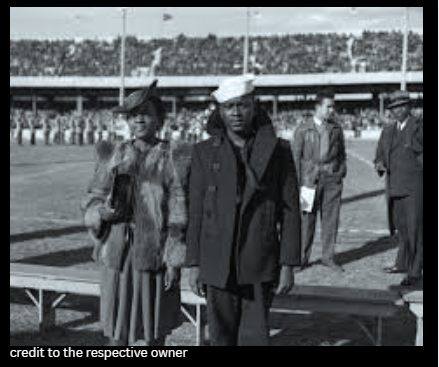He saved 15 men by swimming through shark-infested waters for 8 hours. The Navy sent him a letter. It took 82 years to give him what he truly earned.
September 5, 1942. The waters off Guadalcanal turned crimson as the USS Gregory erupted in flames. Enemy fire had torn through the destroyer’s hull, and she was going down fast. Men dove into the black Pacific, grasping for anything that would float. Screams pierced the night. And somewhere beneath the surface, sharks circled.
Twenty-two-year-old Charles Jackson French, a mess attendant, watched from the water as a life raft drifted in the wrong direction. Fifteen wounded sailors lay helpless inside, too injured to paddle. The current was pulling them straight toward Japanese-controlled shores. Capture meant torture. It meant death.
French didn’t debate. He didn’t wait for orders.
He tied a rope around his waist and began to swim.
What happened next seems impossible. For six to eight hours—through absolute darkness, through waters prowling with predators, through exhaustion that would have killed most men—Charles Jackson French swam. One stroke. Then another. Then another. Pulling fifteen lives behind him.
His arms burned. His lungs screamed. The current fought him with every meter. But he refused to stop. He pulled that raft far enough from enemy territory that when dawn broke, Allied ships spotted them in open water.
All fifteen men survived.
In 1943, the Navy acknowledged his heroism with a letter of commendation. Not a medal. Not a ceremony. Just a letter. Because in 1942, Black sailors weren’t allowed to fight. They cooked. They cleaned. They served white officers. And when they performed miracles, they received thank-you notes while white sailors received medals.
French’s name should have been front-page news. Instead, it disappeared into archives, remembered only by the families of the men he saved.
Eighty-two years passed.
In January 2024, the U.S. Navy finally awarded Charles Jackson French the Navy and Marine Corps Medal—the highest non-combat decoration for heroism. The recognition he deserved in 1942, given when he could no longer receive it. French had died in 1956 at age 37, never knowing his country would remember.
But the Navy went further. In March 2024, they announced that a ship would carry his name: USNS Charles Jackson French. A vessel will now sail the oceans he once swam through to save fifteen lives.
It’s a victory. But it forces us to ask: How many other heroes were erased? How many acts of courage went unrecorded because of the color of someone’s skin? How many names were lost?
Charles Jackson French didn’t swim for glory. He didn’t tie that rope thinking about recognition. He swam because fifteen men were dying, and he could save them.
That’s what heroism looks like.
He swam through darkness. Through fear. Through history itself. And now, finally, his name will sail through those same waters—not as a footnote, but as a promise: We will not forget you again.
Charles Jackson French was a hero. And now the world knows it.
